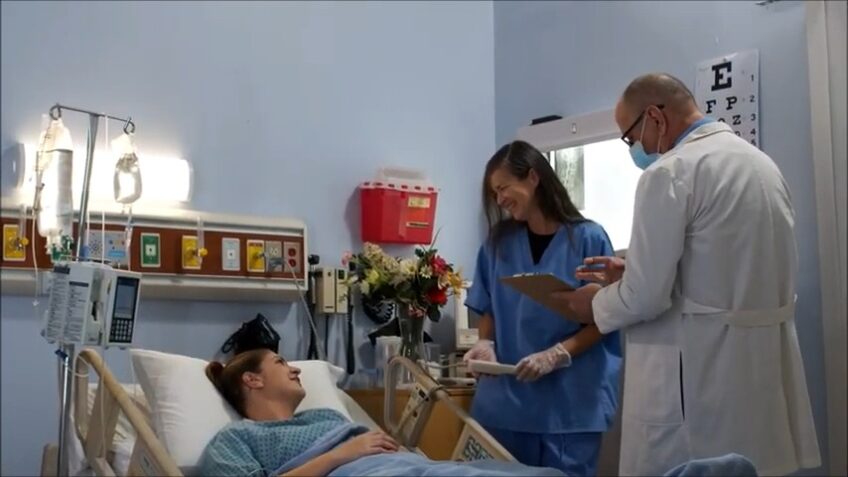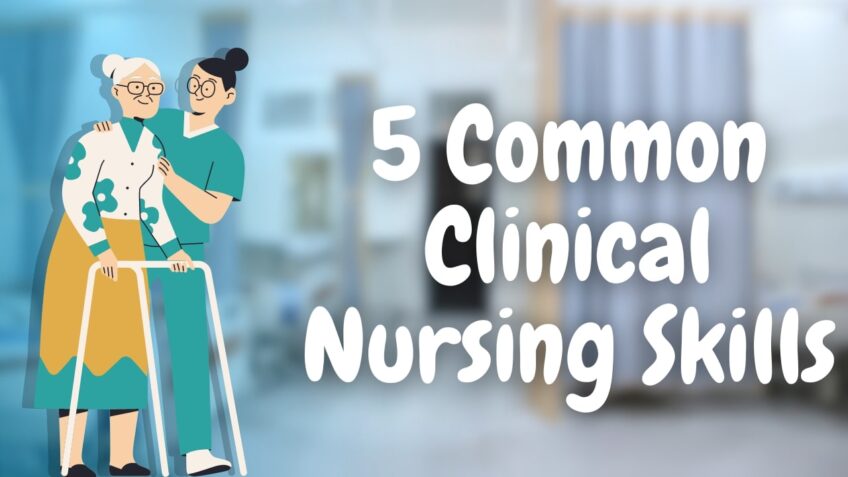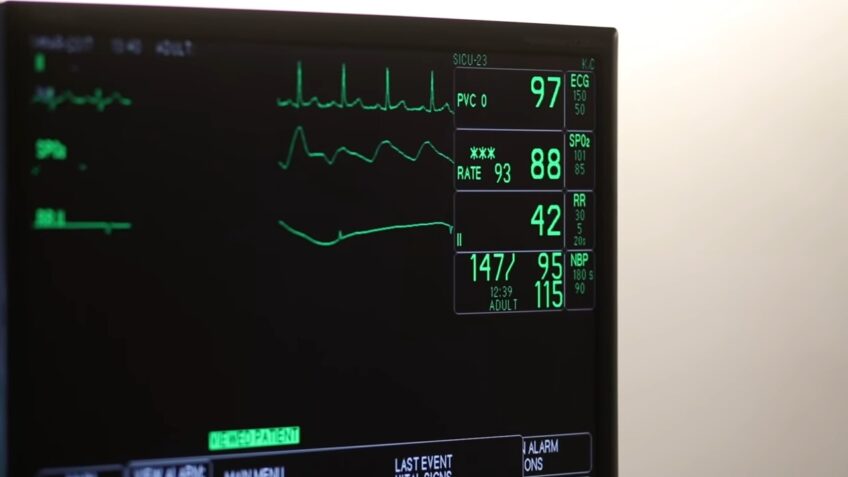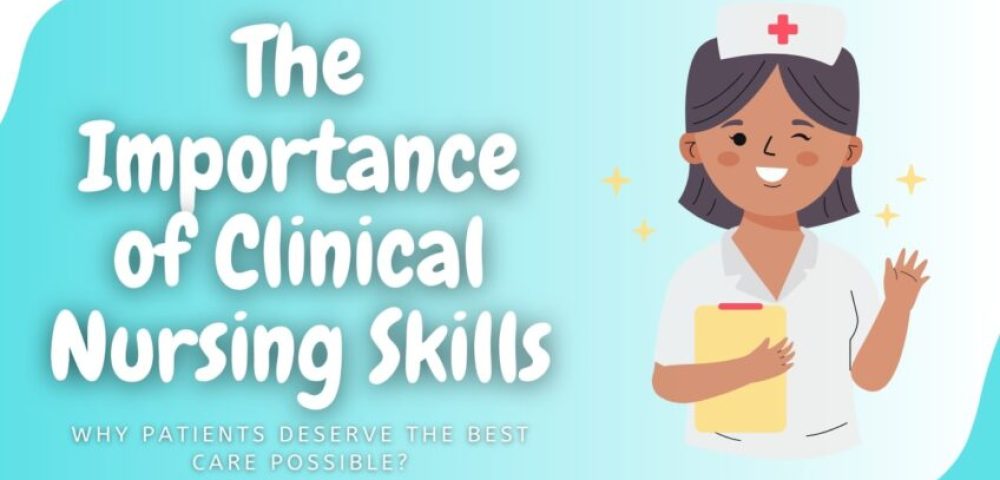Nursing skills are at the heart of providing quality care to patients. As a clinical nurse, you are responsible for assessing patient needs, developing care plans, and implementing treatments that promote positive health outcomes. But why do clinical nursing skills matter?
Page Contents
- 1 What Are the Benefits of Having Clinical Nursing Skills?
- 2 How to Become a Skilled Clinical Nurse
- 3 5 Common Clinical Nursing Skills Needed in Hospitals and Medical Facilities
- 4 Types of Clinical Nurses: Specialized Care for Patients
- 5 The Latest Trends and Technologies Used in Clinical Nursing
- 6 Conclusion
What Are the Benefits of Having Clinical Nursing Skills?
Patients benefit more from receiving care from nurses who are well-versed in clinical practice. Higher levels of patient satisfaction are typically reported when nurses with strong clinical skills deliver care that is based on the individual needs of each patient. Skilled nurses are less likely to make mistakes that could hurt their patients.
How to Become a Skilled Clinical Nurse

As a nurse, you have a unique opportunity to impact the lives of patients in a very real and tangible way. As a clinical nurse, you play an even more critical role in providing high-quality care to patients.
To become a skilled clinical nurse, there are few things you can do:
- Get experience. There is no substitute for experience when it comes to becoming a skilled clinician. The best way to learn is by doing, so make sure to get as much hands-on experience as possible. You can do this by working in various settings, such as hospitals, clinics, and doctor’s offices.
- Shadow experienced nurses, or have them precept you. One of the best ways to learn is from those who have already gone through what you’re about to embark on. If you know any experienced nurses, ask if you can shadow them or if they can serve as your preceptor. This will give you an inside look at what it takes to be successful in this field.
- Attend conferences and workshops. Continuing education is important for all nurses, but it’s especially critical for those who want to specialize in a particular area of nursing. Attend conferences and workshops related to your interests so you can learn from the experts and network with other like-minded professionals.
- Earn certification. In many cases, certification is not required, but it can certainly help you stand out from the rest when seeking employment or advancements in your career. Research organizations like Marymount offer certifications, such as through an online ABSN program in your area of interest, and work toward achieving your particular certification.
- Stay up-to-date on the latest trends in healthcare. Clinical nurses need to stay on top of the latest developments to keep their knowledge relevant and their skills sharp. Read research papers, join online communities, and attend lectures to stay informed about cutting-edge developments in your field.
5 Common Clinical Nursing Skills Needed in Hospitals and Medical Facilities

The clinical nursing skills needed in hospitals and medical facilities are vast and varied. However, there are some skills that are commonly needed in order to provide the best possible care for patients. These skills include:
– Assessing the needs of patients and determining the best course of treatment
– Checking the vital signs of patients and recording accurate patient data
– Administering medications and treatments according to protocol
– Monitoring the progress of patients and alerting doctors or supervisors of any changes
– Providing emotional support to patients and their families.
These are just a few of the many clinical nursing skills that are needed to help provide optimal patient care. Nursing staff must constantly update their knowledge and refine their skills in order to ensure they are providing the best possible care for their patients.
Types of Clinical Nurses: Specialized Care for Patients
The clinical nurse plays a crucial role in ensuring that patients receive high-quality treatment. Direct patient care, coordination of patient care activities, and effective communication with other members of the healthcare team are all the responsibilities of clinical nurses. these professionals are vital to the healthcare team at any given time in the care of patients.
Clinical nurses can specialize in four different areas: medicine and surgery, intensive care, childbirth, and pediatrics. There are many different kinds of clinical nurses, and all of them are highly trained and experienced in caring for a particular population of patients.
Nurses who specialize in medical and surgical care treat patients with a wide variety of illnesses and injuries. They run shifts in hospitals as well as in community clinics. Nurses who specialize in critical care attend to patients who are in a dire medical state.
They do shifts in hospitals as well as in community clinics. Women in labor receive treatment from labor and delivery nurses. After a woman has given birth, these nurses are there to care for her physically and emotionally. The patient population of a pediatric nurse spans infancy through puberty.
The Latest Trends and Technologies Used in Clinical Nursing

As the healthcare industry evolves, so does the field of nursing. Nurses are constantly learning new skills and keeping up with the latest trends and technologies in order to provide the best possible care for their patients.
Some of the latest trends and technologies being used in clinical nursing include electronic health records, telehealth services, point-of-care testing, and patient portals. By using these tools, nurses can easily access important patient information, order tests and prescriptions, and communicate with patients and their families.
Electronic health records (EHRs) are one of the most important tools for nurses. EHRs give nurses quick access to a patient’s medical history, lab results, medications, and more. This information is important when providing care to a patient.
Telehealth services allow nurses to connect with patients via video chat or phone call. This is especially helpful for patients who live in rural areas, or who have difficulty traveling to see their nurse. Telehealth services can also be used to provide follow-up care after a hospital stay or procedure.
Point-of-care testing (POCT) helps nurses save time by allowing them to perform tests on patients at the bedside rather than having to send them to a laboratory. POCT is often used for tests such as blood glucose levels, cholesterol levels, pregnancy tests, and urine analysis.
By adopting these trends and technologies, nurses are able to provide better care for their patients. This in turn leads to happier and healthier outcomes for everyone.
Conclusion
In today’s healthcare system, having the right clinical nursing skills is important for providing effective and safe care to patients. From wound care and medication management to bedside manner and communication techniques, well-developed professional skills are necessary for clinical nurses to deliver the best possible care to their patients.
As clinical nurses, nothing is more important than the quality of care you provide your patients through the skills you have toiled to acquire, develop and administer.
Astrona Knight is the Editor-in-Chief at Fischer Institute, where she shares her extensive knowledge on health and wellness topics. Her insightful articles cover everything from diet and nutrition to mental health, providing readers with practical tips and the latest research findings.
Also Read:
- Exploring and Debunking the Ethical Benefits in…
- Fischer Institute Uses Theragun to Enhance Treatment…
- 10 Plus Real Reasons Why Women Lose Interest In Men
- Why Overthinking is Bad for Your Health? - Insomnia,…
- Major Eggplant Side Effects - Take Care of Your Health
- How Much Does a 72-hour Hold Cost Without Insurance?…















